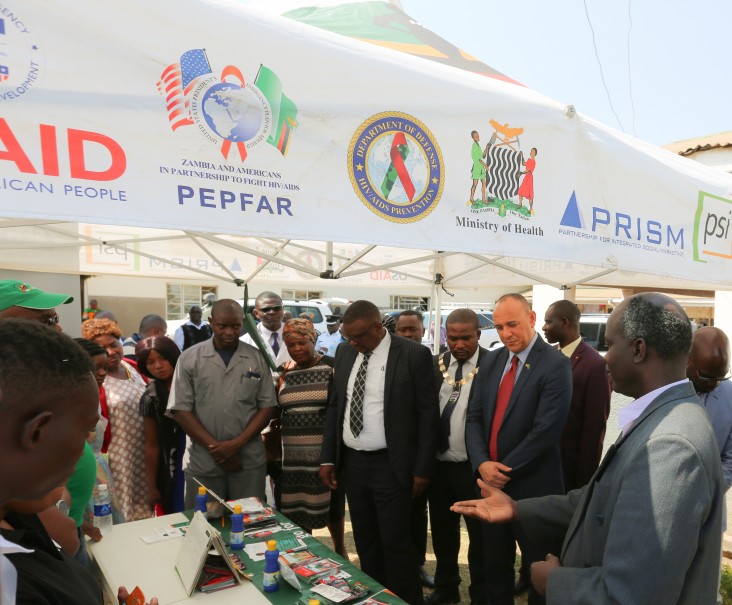Speeches Shim

Solar Plant Handover Ceremony
U.S. Mission Chargé d'affaires Martin Dale
Kasanda Rural Health Center, Kabwe, Central Province
(Remarks as prepared)
HONORIFICS
Honorable Minister of Health, Dr. Chitalu Chilufya (MP, MCC)
Honorable Minister for Central Province, Mr. Sydney Mushanga (MP)
Provincial Permanent Secretary, Mr. Bernad Choomba
Provincial Health Director, Dr. Charles Msisika
His Worship, the Mayor of Kabwe, Mr. Prince Chileshe
Honorable MP for Kabwe, Mr. Tutwa Ngulube
District Commissioner, Mr. Dominic Mulenga
Area Counsellor for Kasanda, Mr. William Kasusu
Heads of Government Departments
Area Manager and representatives from ZESCO
Friends in the media
Ladies and gentlemen
Good morning. On behalf of the United States, I am honored to be here with you today to help demonstrate our continued partnership to strengthen the health care system in Zambia. I bring you greetings from the U.S. Ambassador to Zambia, Daniel L. Foote, and the USAID/Zambia Director, Sheryl Stumbras.
Today it is our great pleasure to officially hand over 18 completed solar power plants, and one solar power system, to Zambia’s Ministry of Health. Two out of three people in sub-Saharan Africa lack access to electricity.
In 2013, the United States government launched Power Africa, with the goal of bringing together technical and legal experts, the private sector, and local governments from around the world to work in partnership to increase the number of people with access to power.
Today’s handover is an example of that commitment here in Zambia.
With funding from the U.S. President’s Emergency Plan for AIDS Relief (PEPFAR), and support from USAID through our implementing partner fhi-360, these solar plants will provide power to 18 health facilities, one health post, and 65 health worker staff houses across Central, Copperbelt, Luapula, Northern and North Western provinces.
A consistent, uninterrupted power supply is essential for health facilities to provide the highest quality services to their patients. Electrical power facilitates timely delivery of essential laboratory results for HIV, TB and cervical cancer screening, and supports life-saving equipment for mothers and newborns - such as incubators, oxygen concentrators, and respirators.
Electricity also improves the quality of learning and the in-field experience for student nurses. It increases job satisfaction for quality health care providers, helping rural health centers retain their best staff. Solar power also reduces the cost of buying from the national grid, allowing health facilities to become more self-sufficient and sustainable.
Prior to the installation of solar power here at the Kasanda health facility, midwives were using spotlights to deliver babies. Inconsistent refrigeration affected the cold storage required for vaccines, and health-care providers were unable to provide timely test results, appropriate newborn care, and other essential services.
As you can imagine, these challenges were affecting provider morale and patient safety. After the installation of the solar plant, the Kasanda health center’s monthly power costs have dropped by more than half. The facility can now safely accommodate vaccine storage onsite, and health services are now available 24 hours a day.
The improvement of health facility infrastructure continues to be a priority investment for the United State government. In order for these solar plants to have a long-term impact on service delivery, all levels of the Ministry of Health need to play and role and remain committed to their maintenance, repair, and security.
The United States believes every person, every community and every country wants to be empowered to lead their own future.
We support self-reliance by walking alongside our friends on their development journey. We look forward to continuing to support improved health service delivery across Zambia and I thank you, again, for welcoming me to this important occasion.

Comment
Make a general inquiry or suggest an improvement.